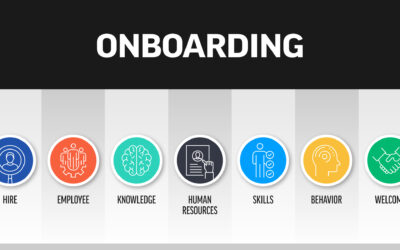Independent insurance agents must adapt to the changing expectations of modern consumers to remain competitive in today’s insurance landscape. Nowadays, consumers seek an experience that matches the quality of service offered by leading brands like Amazon and Starbucks. The demand is for speed and efficiency packaged in an overall seamless experience. Accordingly, agents must first acknowledge this shift in consumer preferences before striving to meet these expectations.
The increased competition in the insurance market means consumers have more options. They want personalized services, quick response times, and transparency in pricing and policies. Failure to meet these expectations may result in a poor experience, which could lead to negative reviews, loss of clients—and ultimately a downturn in agency revenue. On the other hand, adapting to these new consumer expectations can help attract and retain clients, build a loyal client base, and enhance an agency’s reputation, leading to increased revenue and growth.
Technological advancements have enabled consumers to conduct business at their convenience, resulting in an increased demand for fast, customized, and convenient service from their independent insurance agents. In response, the insurance industry has begun to adopt digital solutions such as chatbots, virtual assistants, and mobile apps to facilitate policy comparison, quotes, and communication. Some consumers now can pay bills and receive quotes through an app or the web, while service center technology enables round-the-clock assistance.
Professional insurance agents must adapt and find new ways to meet the needs of their clients to keep up with these changing expectations. With that in mind, here are five recommendations that agents can follow to better serve their clients and stay ahead of the curve.
First impressions
The first impression, made when meeting a new client, can have a lasting impact that extends for years. To create a positive impression, it is important to make a connection, establish clear expectations, and exhibit expertise.
This approach can foster trust and loyalty. It is important to remember that today the first impression is just as likely to be made digitally or virtually. Ultimately, the foundation of consumer loyalty is based on providing exceptional service and demonstrating that independent agents are more than just policy sellers.
Embrace digitalization
One of the most significant changes in consumer expectations in recent years is the expectation of a seamless digital experience. Consumers expect to be able to research insurance options, receive quotes, and purchase policies online.
Independent agents need to embrace digitalization to meet these expectations. This means having a website that is user-friendly and easy to navigate. It also means offering online quotes and policy management options.
Personalize the experience
Despite the move toward digitalization, consumers still want a personalized experience.
Independent agents should take the time to get to know their clients and their unique needs. By doing so, agents can offer tailored insurance solutions that meet the specific needs of their customers. This personalization can go a long way in building loyalty.
Be available and responsive
Another expectation of the modern consumer is quick and responsive service. Independent agents need to be available to their clients whenever they need assistance. This means having multiple channels of communication, including phone, email, mobile app, and chat. It also means responding to inquiries and concerns promptly.
Add value
Rather than treating insurance like a commodity, an independent agent’s role is to identify and provide solutions for a consumer’s unique needs. Add value to client relationships by acting as an adviser. This can be done in several ways, including taking the time to know and understand a client, discussing the benefits and drawbacks of different types of coverage, and offering advice on which policy limits and deductibles make sense for their situation.
As an insurance expert, an independent agent also can provide clients with advice on how to minimize their risk exposure. This might include tips on safety practices, disaster preparedness, or other risk-management strategies. Insurance needs don’t end once a policy is in place. As an adviser, an agent can offer ongoing support to clients by helping them make changes to their coverage as their needs evolve and providing guidance in the event of a claim.
A note on generational differences
Different generations require different relationship building strategies because each has unique preferences, values, and communication styles that impact how they interact with others.
Younger consumers, such as those in Generation Z, tend to prefer digital communication such as email and texting.
On the other hand, older generations may be more apt to want that one-on-one personal connection.
These preferences influence how they engage with businesses and make purchasing decisions. However, don’t generalize too broadly and determine how each client or prospect prefers to communicate as you begin to engage with them.
Navigating the new era
The modern consumer wants quick, efficient, and personalized services within a seamless digital experience. The successful agent will embrace digitalization, personalize the experience, be available and responsive, and add value to client relationships. Meeting and exceeding these expectations, today’s independent agents can attract and retain clients, build a loyal client base, and enhance their agency’s reputation to ultimately lead to increased revenue and growth.

Tom Lizotte
Tom Lizotte is chief operating officer of the Satellite Agency Network (SAN Group), responsible for the operations of the largest alliance of independent insurance agencies in the Northeast, which writes over $1 billion in total member premiums annually. SAN Group has over 380 members spanning across eight states and is the founding Master Agency of SIAA, the largest partnering insurance agency alliance in the nation.






